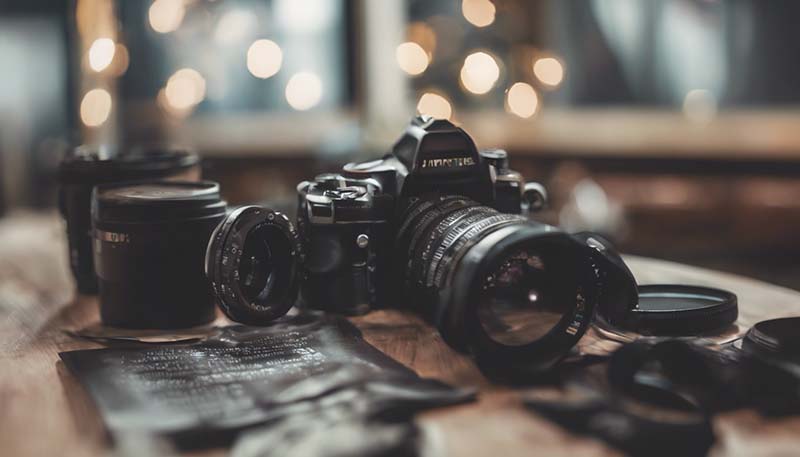Interview Follow-Up: The Do\'s and Don\'ts
================================================
In the competitive job market, the interview process is just one piece of the puzzle. A successful interview is followed by a well-executed follow-up that can make all the difference between being remembered and being forgotten. In this article, we will discuss the essential do\'s and don\'ts of interview follow-up to help you stand out and increase your chances of landing the job.
Table of Contents
-----------------
1. [Introduction](#introduction)
2. [The Do\'s of Interview Follow-Up](#dos)
- [Do Send a Thank You Note](#thank-you-note)
- [Do Follow Up with a Phone Call or Email](#follow-up-call-email)
- [Do Address Specifics Mentioned in the Interview](#specifics)
- [Do Stay Connected on Social Media](#stay-connected)
3. [The Don\'ts of Interview Follow-Up](#donts)
- [Don\'t Be Overly Aggressive](#overly-aggressive)
- [Don\'t Neglect the Follow-Up](#neglect-follow-up)
- [Don\'t Send Generic Messages](#generic-messages)
Advertisement
- [Don\'t Discuss Salary Until Offered](#discuss-salary)
4. [Tips for Crafting a Standout Follow-Up](#crafting-follow-up)
5. [Conclusion](#conclusion)
Introduction
------------
The interview is over, and you\'re left wondering what to do next. Should you call? Should you wait for them to call you? The uncertainty can be nerve-wracking, but it\'s important to remember that the follow-up process is a crucial part of showing your continued interest in the position and the company. It\'s also an opportunity to reinforce your qualifications and reiterate your enthusiasm for the role.
The Do\'s of Interview Follow-Up
------------------------------
Do Send a Thank You Note
The first thing you should do after an interview is send a thank you note. This can be an email or a handwritten note, but it\'s important to do it within 24 hours of the interview. A thank you note not only shows your appreciation for the interviewer\'s time but also serves as a gentle reminder of your candidacy.
Do Follow Up with a Phone Call or Email
After sending your initial thank you note, it\'s a good idea to follow up with a phone call or another email a week or so after the interview. This follow-up is to express your continued interest in the position and to inquire about the timeline for a decision.
Do Address Specifics Mentioned in the Interview
When you follow up, it\'s a good idea to reference something specific that was mentioned in the interview. This could be a project you discussed, a skill set that was highlighted, or even a shared interest with the interviewer. This shows that you were paying attention and that you\'re genuinely interested in the opportunity.
Do Stay Connected on Social Media
In today\'s digital age, it\'s also important to stay connected with the company and the people you interviewed with on social media. Follow the company on LinkedIn, and connect with your interviewers if it\'s appropriate. This not only keeps you in their minds but also allows you to stay informed about the company\'s latest news and updates.
The Don\'ts of Interview Follow-Up
--------------------------------
Don\'t Be Overly Aggressive
While it\'s important to follow up, you don\'t want to come across as desperate or pushy. Avoid calling or emailing too frequently, and don\'t be confrontational if you don\'t hear back right away. Remember, hiring processes can take time, and being overly aggressive can actually hurt your chances.
Don\'t Neglect the Follow-Up
On the other hand, don\'t neglect the follow-up process altogether. If you don\'t hear back after your initial follow-up, it\'s okay to send a polite reminder. Just be sure to space out your communications and avoid being a nuisance.

Don\'t Send Generic Messages
When you\'re sending your thank you notes and follow-up messages, make sure they\'re personalized and not generic. Avoid copying and pasting the same message for every interviewer or company. Instead, tailor each message to the specific person and the specific interview.
Don\'t Discuss Salary Until Offered
Finally, it\'s important not to discuss salary until a job offer is on the table. Bringing up salary too early in the process can make you appear money-focused and may disqualify you from consideration.
Tips for Crafting a Standout Follow-Up
-------------------------------------
When crafting your follow-up messages, keep the following tips in mind:
1. **Be Concise:** Keep your messages short and to the point. You want to convey your message without taking up too much of the recipient\'s time.
2. **Be Positive:** Maintain a positive tone throughout your messages. This shows that you\'re enthusiastic about the opportunity and that you\'re a pleasure to work with.
3. **Be Professional:** Even in a thank you note, maintain a professional tone. This is still a business communication, and it\'s important to present yourself as a professional candidate.
4. **Be Specific:** As mentioned earlier, reference something specific from the interview to show that you were engaged and attentive.
5. **Proofread:** Before you hit send, be sure to proofread your message for any spelling or grammatical errors. A well-written message reflects well on you as a candidate.
Conclusion
----------
The interview follow-up process may seem daunting, but with the right approach, it can be a powerful tool in your job search arsenal. By following the do\'s and don\'ts outlined above and crafting thoughtful, personalized messages, you can set yourself apart from other candidates and increase your chances of landing the job. Remember, the follow-up is your chance to leave a lasting impression, so make it a good one.
Comment